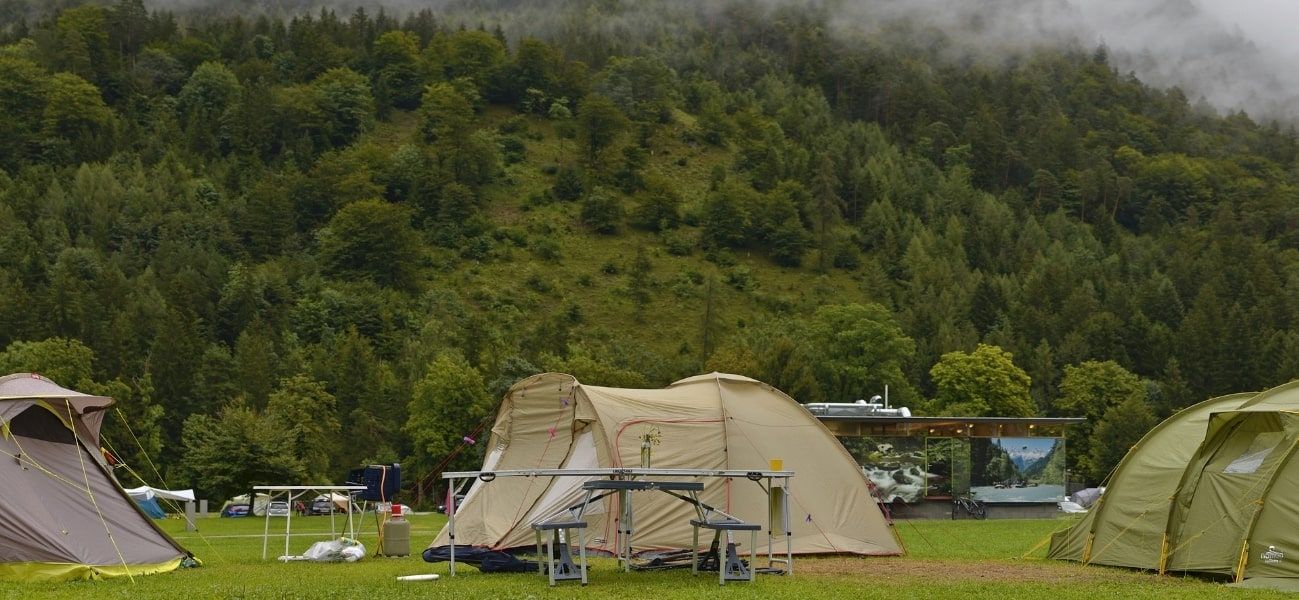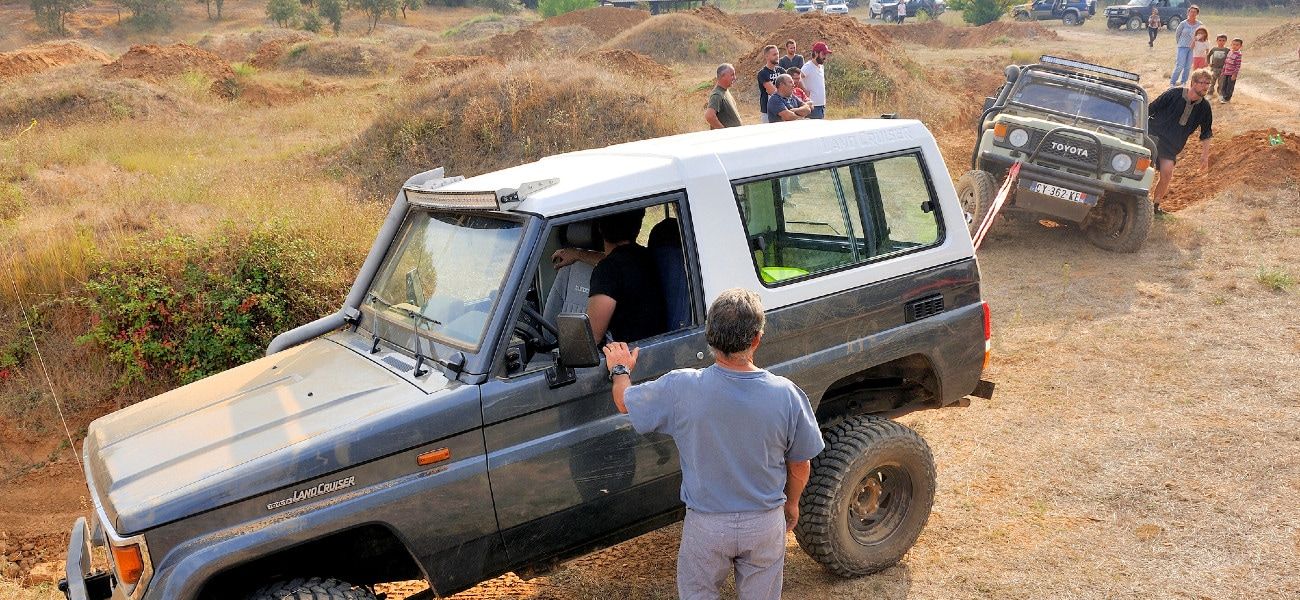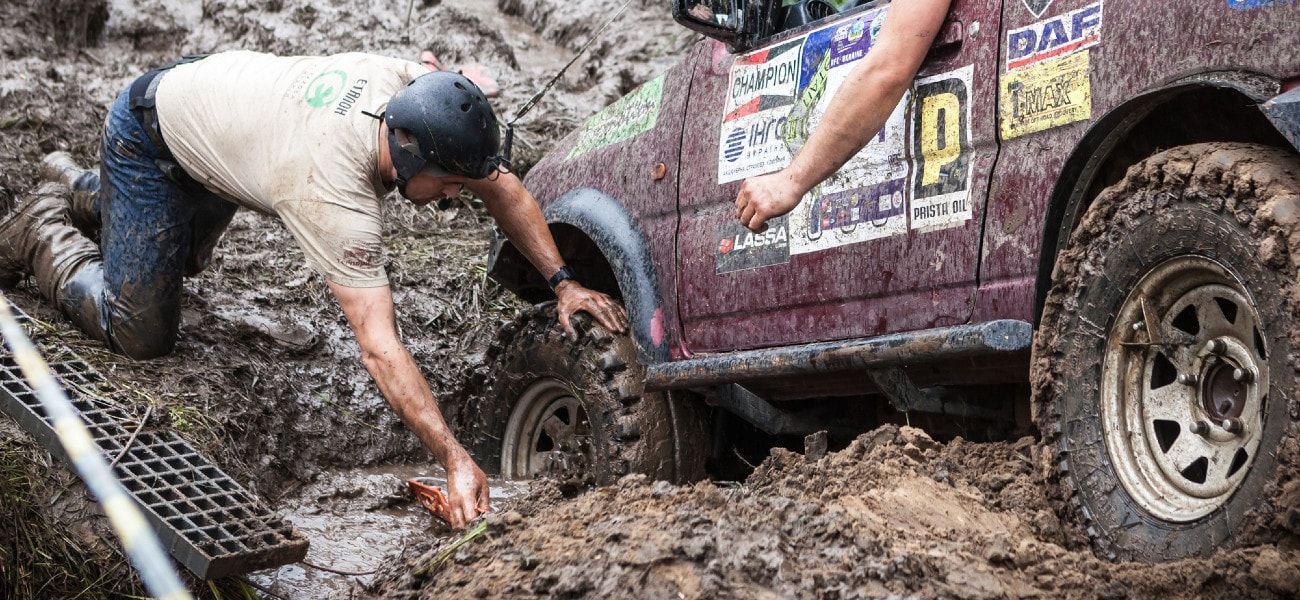Are you looking for a tent for your next camping trip but wondering what the different season ratings mean? What do these tent season ratings mean, and is a higher number or a lower number better?
Let’s take a look!
What Are Tent Season Ratings?
These ratings are a measure of how well a tent can handle certain weather situations. A tent with a higher number rating is generally more suitable for use in a greater variety of weather conditions.
But don't assume that a tent with a higher number rating is always better! A higher number tent may be capable of handling intensely cold conditions but isn't necessarily ideal for a warm summer’s night.
Your camping environment and your experience will dictate which rating you should choose. A smaller number is best for new campers in comfortable situations. A higher value is for those who have been around for a while and plan on camping in more severe weather.
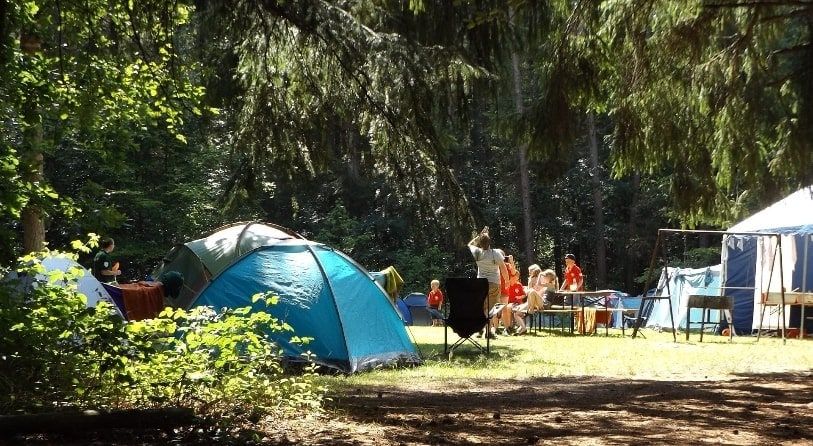
1 Season
The most simple tents often have a 1 season rating. They tend to be thin tents with minimal waterproofing.
They often don’t even come with a rainfly (an external layer on your tent to ensure it doesn’t get overly wet when it rains). For this reason, they are not suitable beyond a drizzle of rain. The lack of rainfly also means that the insulation against cold weather is quite poor as well.
1 season tents are intended for use in summer, particularly with favourable weather conditions and little to no rain.
If you are doing some festival or backyard camping in good weather, a 1 season tent will probably be fine. But be ready to pack up if you see dark storm clouds brewing on the horizon, or if the temperature starts dropping significantly.
Many of the ultra cheap tents that are available these days tend to be 1 season tents.
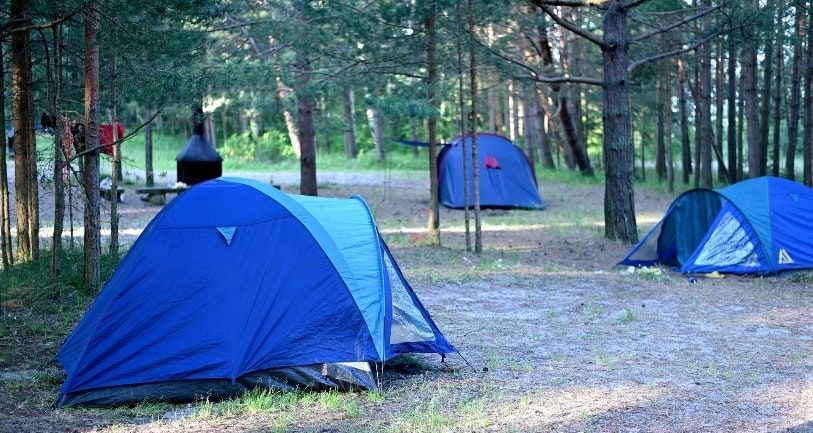
2 Season
You will find a bit of extra coverage and protection with a 2 season tent. It will also have a little more insulation than a 1 season model. It may or may not come with a rainfly, but in any case, it won't handle heavy rainfall very well.
Both 1 and 2 season tents are best suited for use at established campsites, especially those that have designated spots to pitch your tent.
If you decide to go camping with a 1 or 2 season tent, make sure that you review the weather conditions before heading out on your trip to make sure that the conditions will be suitable for your tent.
The part of Australia that you live in will play a big role here. While 1 and 2 season tents are usually designed for spring and summer conditions, northern Australia and most of Queensland gets short bursts of heavy rainfall in summer, making 1 and 2 season tents not very useful.
However, those in South Australia, Victoria or other areas with a drier summer may be able to get away with using these tents.
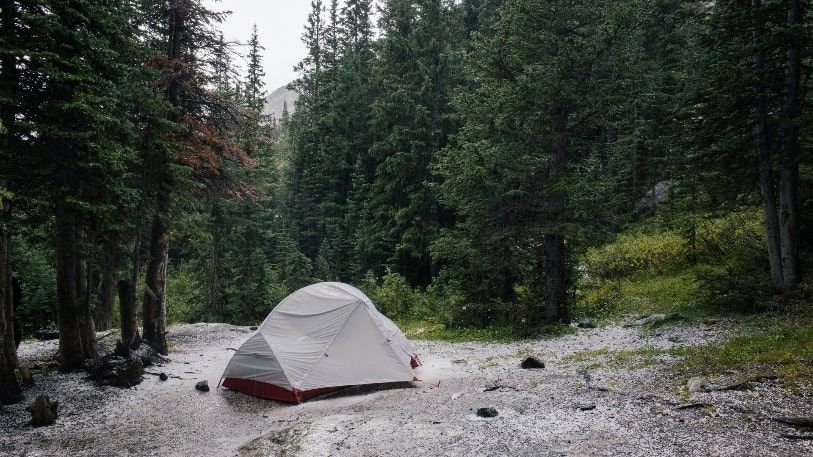
3 Season
3 Season tents are considerably better when it comes to handling Australian weather conditions. Considering Australia is prone to fairly wild weather, I generally consider a 3 season rating to be the minimum for doing serious camping in Australia.
3 season tents are usually designed for use in spring, summer and autumn. Areas with mild winter conditions (coastal Queensland and northern Australia) are suitable for 3 season tents, thanks to the comparatively warm temperatures.
These tents usually feature a double-walled design. There is typically an inner tent with mesh walls for ventilation plus an external rainfly for insulation and wind/rain protection. The body of the tent also tends to be sturdier, making it less likely to blow away in severe wind.
They also usually don’t have as many poles as 4 or 5 season tents. This makes them easier to install, but you do lose some stability. This will be fine as long as you aren’t camping in very windy conditions.
The tent also isn’t going to handle snowy conditions. Snowfall directly on a 3 season tent will probably be too much for it. There also won’t be sufficient insulation to keep you warm. Thankfully, this is rarely an issue when camping in Australia!
Most instant tents, pop up tents and roof top tents tend be rated as suitable for 3 seasons.
4 Season
Now, you may be thinking that a 4 season tent means the perfect tent for every season. Well, this isn’t actually the case. A 4 season tent is actually a tent designed specifically for winter use.
4 season units tend to be very heavily insulated to prevent heat escaping from your tent. They usually feature double-layered fabric with a waterproof body. However, all of this extra insulation means that these tents are not very breathable like the earlier options we discussed.
For this reason, a 4 season tent is not actually a great option when it comes to camping on a hot night. You’ll find yourself sweating away in your tent without any ventilation to help cool you down.
To allow for camping in rougher conditions, many 4 season tents come with thick floor fabrics. The floor fabric lets you secure the tent in a variety of conditions, although you should still take care to ensure that you aren’t pitching your tent in a damp area.
Some of the other features you might find on a 4 season tent include storm and snow flaps at the base to help shed off any accumulated snow. These tents also tend to feature fabrics that are resistant to abrasion. This means that they are less likely to be damaged by tree branches from above or rocks from below.
All of these extra features tend to make these tents slightly heavier than other models. In saying that, there are still a number of 4 season hiking tents that are very light.
When installed properly, these tents are both windproof and waterproof. They are suitable for just about any conditions that you are likely to see while doing all but the most extreme camping. Many touring tents are given 4 season ratings.
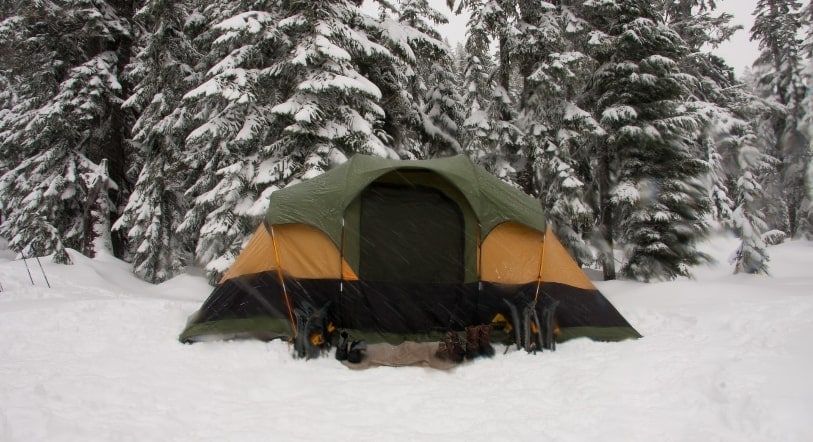
5 Season
Also known as expedition tents, 5 season tents are intended only for use in the most intense cold conditions. They have extra insulating features plus additional tent poles to keep the tent upright while in heavy wind or snow conditions. They can also manage sub-freezing temperatures thanks to their heavy insulation.
They are only for professional campers embarking on a trip in extreme conditions. In any other case, these tents are overkill.
They can also be very costly. You can expect to spend about four to five times as much money on a 5 season tent as what you'd pay for a 3 season model!
Conclusion
Tent season ratings are designed to give you a feel for the kind of weather conditions that a particular tent can be used in.
There are a wide variety of ratings out there to cover a whole range of potential weather conditions. Don’t fall into the trap of choosing a tent with the highest possible rating, as it is probably unnecessary for the kind of camping that you will be doing.
Generally speaking, 2 to 3 season tents are recommended for light to moderate camping in Australia. However, consider where you will be camping, what time of year you will be camping, as well as the likelihood of poor weather occurring before purchasing your next tent.
If you do think that you’ll need some extra protection, consider getting a 4 season tent.
Feel free to comment below if you have further questions! I’ll do my best to help you out.
This article may contain affiliate links. I will earn a commission if you choose to purchase a product or service after clicking on my link. This helps pay for the cost of running the website. You will not be disadvantaged in any way by using my links.
Note that while every effort is made to ensure the accuracy of the information on this page, there may sometimes be errors. Check all specifications with the manufacturer before purchasing any product.

